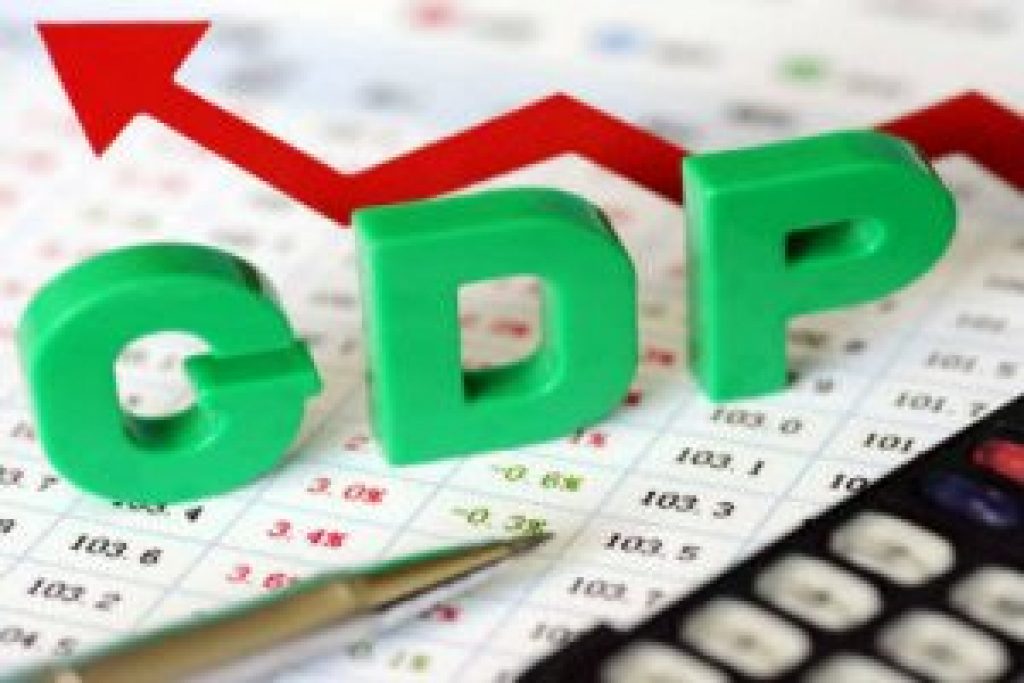Economic Survey projects 7% GDP growth in current fiscal

Finance and Corporate Affairs Minister Nirmala Sitharaman tabled the Economic Survey 2018-19 in both Houses of Parliament .
The survey projects GDP to grow at 7 per cent in 2019-20. The Indian economy is expected to grow at 6.8 per in 2018-19 while maintaining macro-economic stability.
The fiscal deficit has been pegged at 3.4 per cent of GDP for 2018-19. The survey has provisionally estimated 2.9 per cent growth rate for the agriculture, forestry and fishing sector.
283.4 million tonne foodgrain production has been projected. Imports are slated to grow at 15.4 per cent while exports are projected to grow at 12.5 per cent for the year 2018-19.
It has put forex reserves at 412.9 billion dollars for fiscal 2018-19.
The survey also lays down the strategic blueprint for fructifying Prime Minister Narendra Modi’s vision of India becoming a 5 trillion dollar economy by 2025.
To achieve the vision, India needs to shift its gears to accelerate and sustain a real GDP growth rate of 8 per cent.
The theme of the survey is about enabling shifting of gears to sustained economic growth to achieve a 5 trillion dollar economy by 2025.
The survey has recommended creating a virtuous cycle encompassing private investment, jobs, export and demand. It states that the Indian economy has performed well in the last five years.
The Economic Survey highlights the immense potential of data of societal interest and says data should be of the people, by the people and for the people. Demographic trends suggest the need to prepare for the ageing population, which necessitates more healthcare investment and increasing retirement age in a phased manner.
The Economic Survey 2018-19 highlights the importance of investing in social infrastructure, especially education and health, as a key priority in the development strategy to achieve inclusive growth.
India is working seriously to meet its commitments towards Sustainable Development Goals 2030.
The expenditure on Social Services by the Centre and States increased from 7.68 lakh crores in 2014-15 to 13.94 lakh crore in 2018-19.
The expenditure on education increased from 2.8 per cent to 3 per cent and expenditure on health increased from 1.2 per cent to 1.5 per cent from 2014-15 to 2018-19.
The Economic Survey also highlights a large number of social protection schemes taken up by the government during the last five years as a part of its commitment to provide social security to the people of the country.
Under the PM KISAN 2019, around 3 crore 10 lakh small farmers have received the first tranche of two thousand rupees and two crore 10 lakh farmers have got the second instalment, as on 23rd April this year.
Prime Minister Narendra Modi has said, the Economic Survey 2018-19 outlines a vision to achieve a five trillion dollar economy.
In a tweet, Mr Modi said, the survey also depicts the gains from advancement in the social sector, adoption of technology and energy security.
The Chairman of the Economic Advisory Council to the Prime Minister (EAC-PM), Dr. Bibek Debroy has welcomed the Economic Survey’s emphasis on fiscal consolidation, fiscal discipline and investments, especially private investments, as the growth driver.
In a statement, Dr Debroy said, the Survey has laid out a blueprint for growth and jobs in the next five years.
He said, there is a continuity between the policies from 2014 and 2019 and the expected policies from 2019 to 2024. EAC-PM Chairman said, focus on fiscal devolution and federalism, expenditure reform, policies for MSMEs, GST and reform of direct taxes reflect the vision of government.
Dr Debroy said the one novel and welcome aspect of this year’s Economic Survey was its highlighting of judicial reforms and the role of data as a public good.